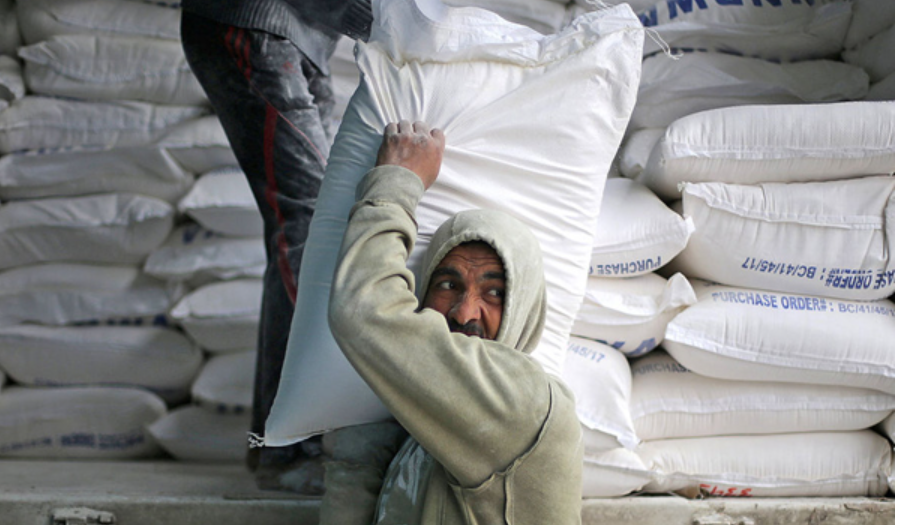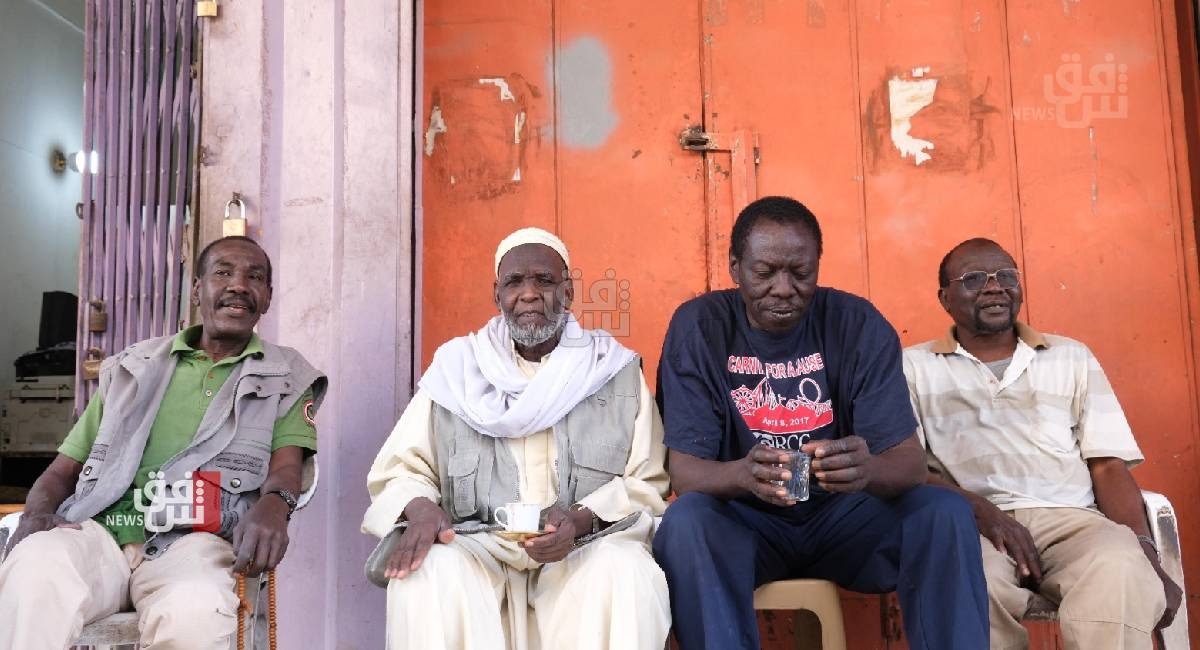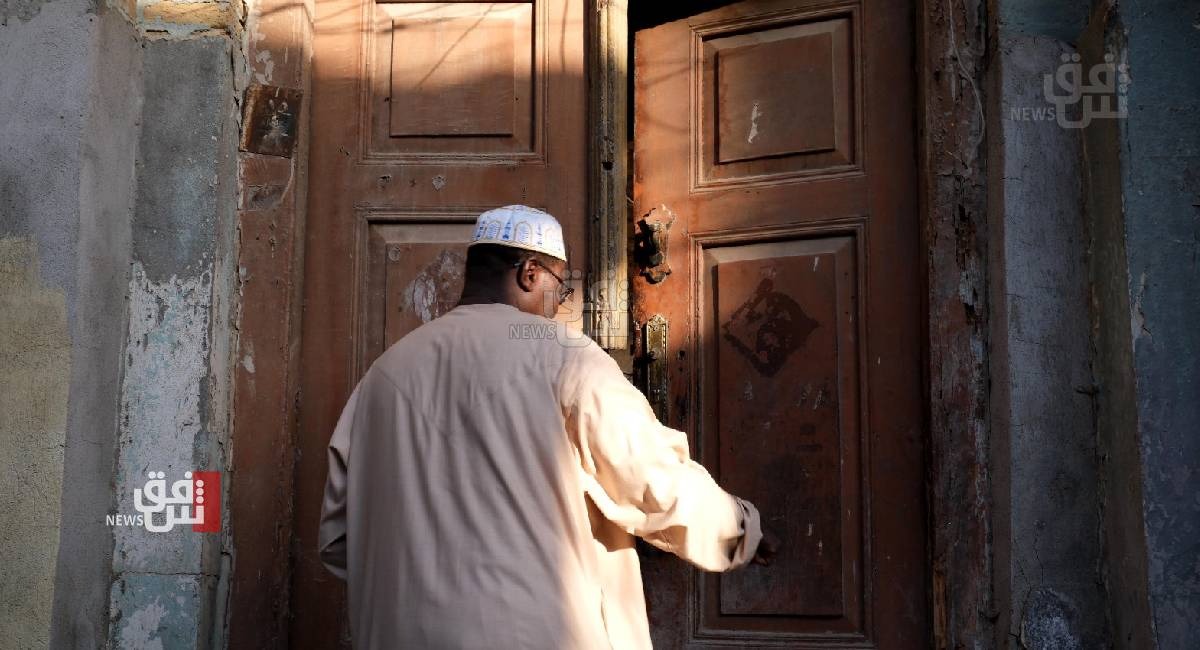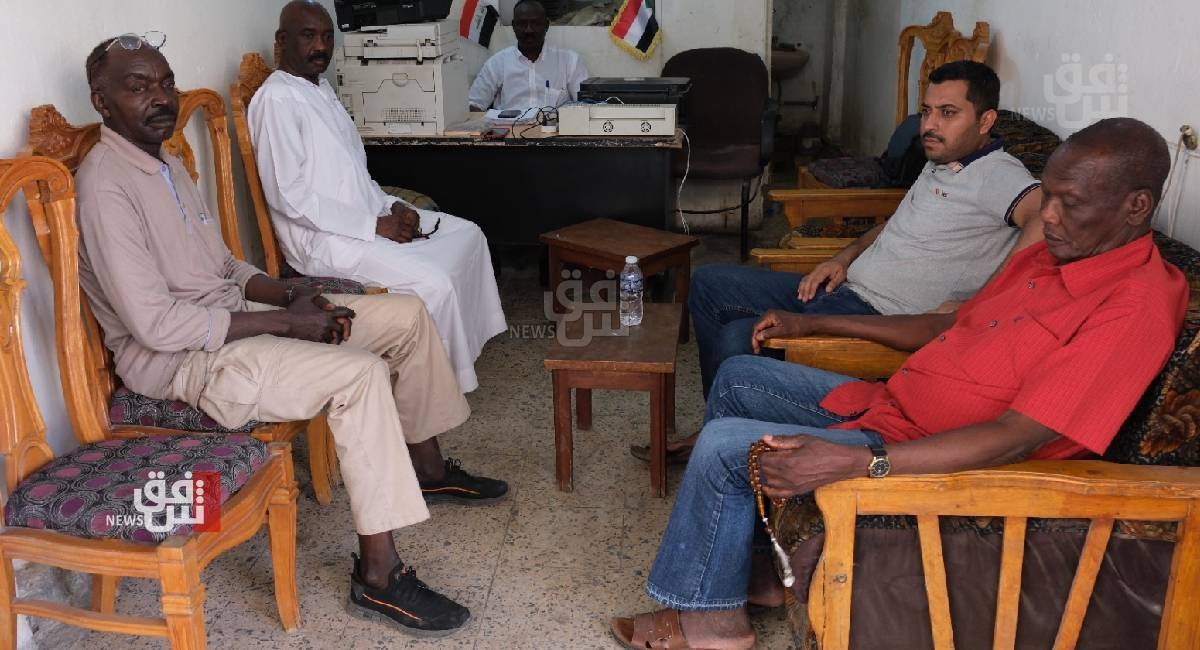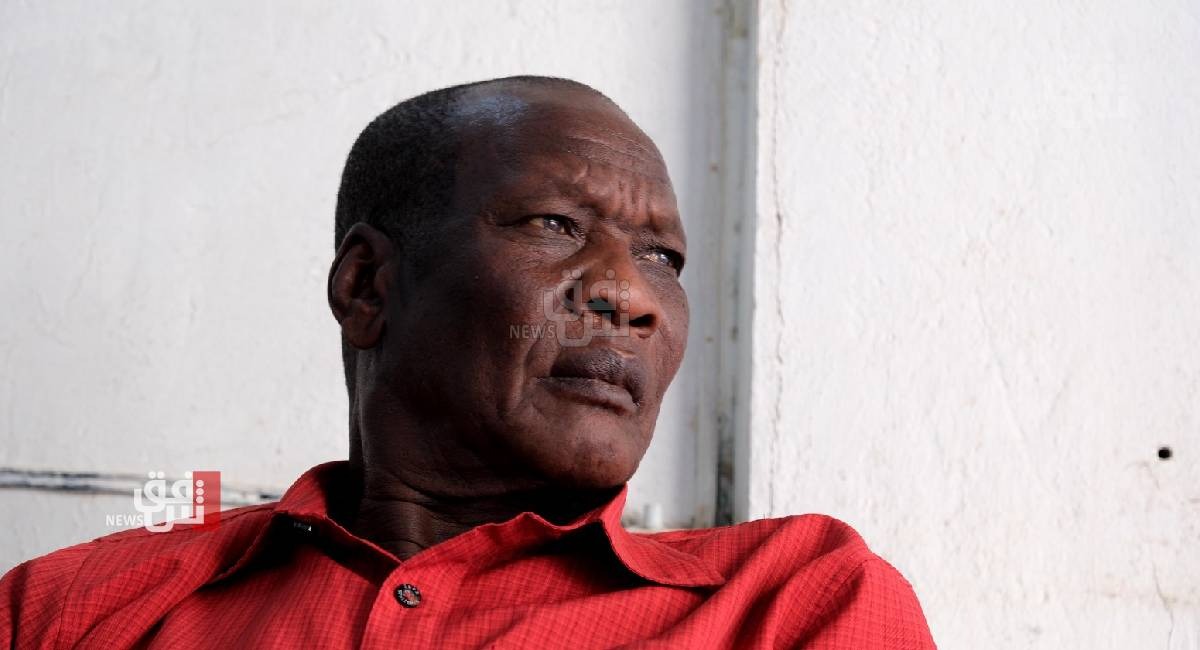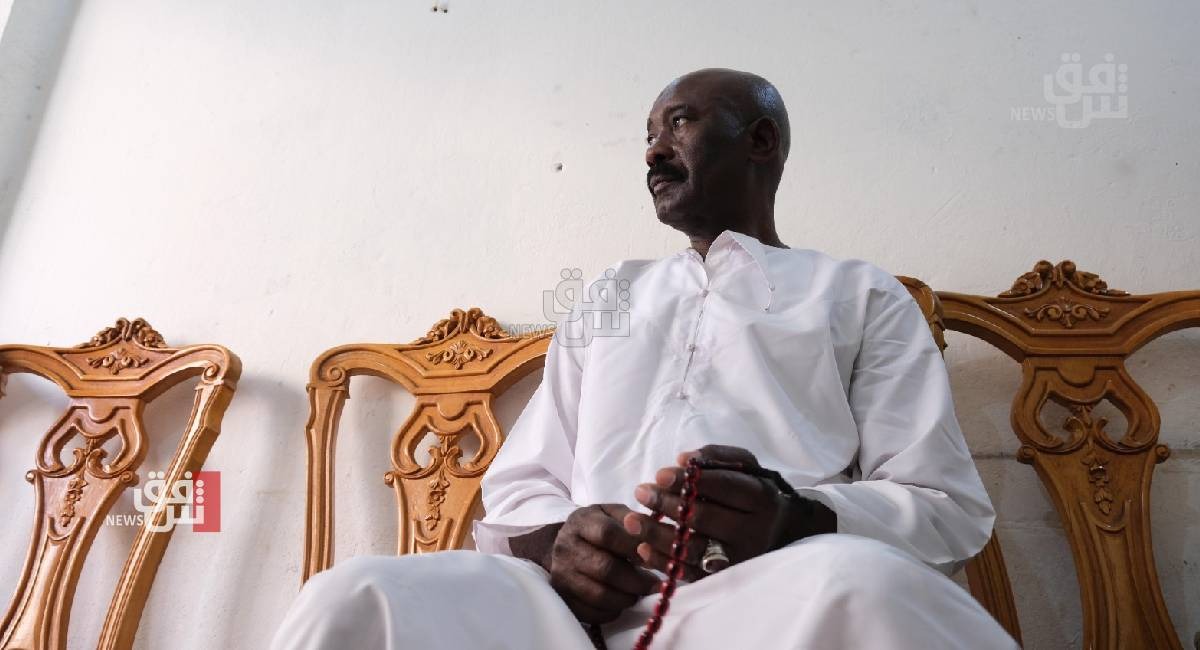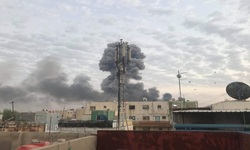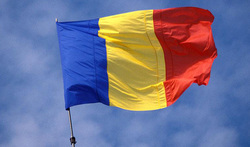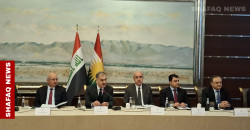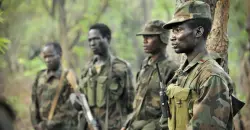Sudanese residents in al-Batawin concerned about home country's war: a reminder of Iraq's experience
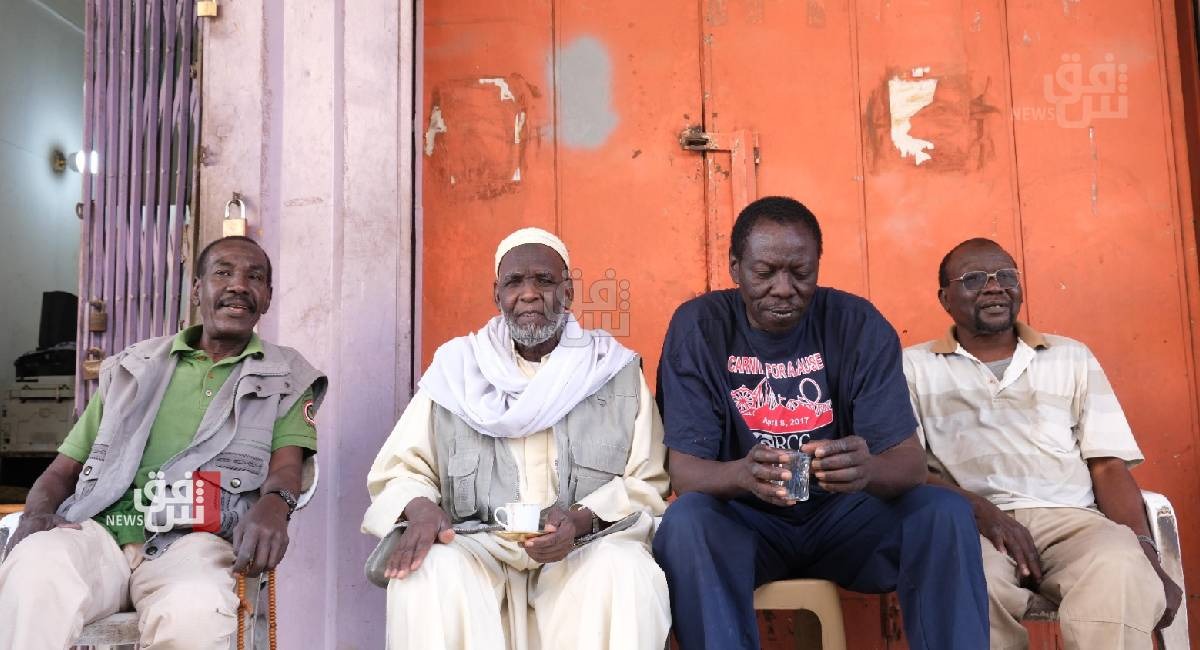
Shafaq News / Amid repairing watches and engaging in various occupations within their major stronghold located in the al-Batawin area of central Baghdad, Sudanese immigrants find themselves helplessly observing their home country being engulfed in the flames of war, portending a horrific conflict.
The Sudanese nation has not experienced long stretches of peace since its independence from Britain in 1956. However, the ongoing conflict between General Abdel Fattah al-Burhan, the commander of the Sudanese army, and Mohamed Hamdan Dagalo, popularly known as "Hemedti," the commander of the Rapid Support Forces, has not only exposed the extent of internal differences but also the external dimensions of the war and its potential regional repercussions.
Despite residing in Baghdad and being at a distance from the conflict, the Sudanese immigrants are entirely preoccupied with their country's affairs. Although accurate data on the number of Sudanese in Iraq do not exist, estimations suggest that over 1,300 Sudanese individuals reside in al-Batawin, including 30 families.
According to Muhammad, a Sudanese citizen, "The conflict has been imposed upon the simple people. The battle is not in the interest of Sudan since there is no higher interest when brothers fight among themselves. The only things being fought for are Sudan's gold and oil wealth."
Another Sudanese citizen remarked, "We do not want a repetition of what occurred in Lebanon, Syria, and Iraq. This does not imply that we undervalue the importance of these countries, but rather that we recognize the magnitude of the potential losses."
Despite spending many years working within Iraq, the Sudanese community in al-Batawin continues to yearn for their mother country, where their family and friends reside. As one of them stated, "We still ache for our country, and we are extremely saddened by what is happening there. We occasionally travel there, and unfortunately, several of our friends and relatives have lost their lives due to this senseless conflict in which they had no stake."
Following the commencement of two civil wars, the first between 1959 and 1972 and the second between 1983 and 2005, between the north, which is predominantly inhabited by Muslims, and the south, which is mostly populated by Christians and tribal people with their beliefs, the Sudanese people's suffering only intensified. In the name of Christianity and to protect their interests in energy and mining businesses, the West backed the southerners.
In 2005, the signing of the "Nivasha Agreement" ended the second phase of the civil war. A referendum was conducted in 2011, resulting in the creation of the state of South Sudan due to the overwhelmingly southern majority vote for independence. The new state, which is approximately 620,000 square kilometers in size, cost Khartoum almost 70% of its oil revenue. Although Sudan's oil output was thought to have peaked in 1999 at 450,000 barrels per day, it drastically declined to 110,000 barrels per day after South Sudan's independence.
However, it is noteworthy that the rivalry between the two leaders is also linked to their positions in the new political phase, the scope of their influence, and their international ties, extending far beyond the decisions made in the agreement to transfer power to civilians.
Furthermore, the American "Axios" website reported on the final hours before the "moment of collapse" that triggered the conflict between al-Burhan and Hemedti on the 15th of this month. According to U.S. officials and Sudanese sources, the conflict revolved around how the military would be organized in Sudan after the establishment of a civilian government. Hemedti insisted on having a direct line of communication with the civilian administration rather than going through the army chief, while al-Burhan sought to be the only military official reporting directly to the civilian government.
